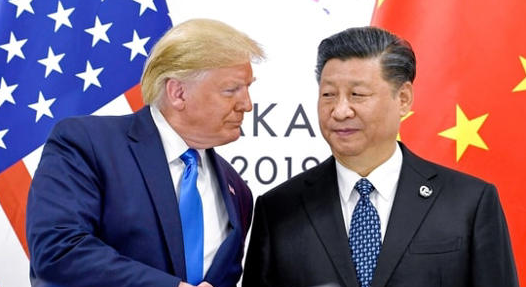
English Reader
Shuchna.com News
Tensions in US-China Trade Relations: Causes, Effects and Future Prospects
Introduction
The US-China trade relations have been under constant tension for the past few years. This tension is not limited to economic issues but also includes geopolitical, technological competition and national security aspects. This tension has deepened further with the US imposing new tariff rules on China and China imposing sanctions on US companies in retaliation. In this article, we will analyze the history of US-China trade relations, current disputes, their effects and future prospects.
1. Historical Perspective of US-China Trade Relations
The trade relations between the US and China were established in the 1970s, when the US formalized diplomatic relations with China and allowed it to join the global trading system. After China joined the World Trade Organization (WTO) in 2001, trade relations between the two countries were growing rapidly.
However, since 2018, trade tensions between the US and China have escalated, when then US President Donald Trump imposed heavy tariffs on China, accusing it of unfair trade practices. In response, China also imposed tariffs on US products, starting a “trade war”.
2. Current trade disputes and reasons
Recently, tensions in trade relations between the US and China have increased due to several reasons, including:
(a) Tariffs and trade sanctions
The US announced an additional 10% tariff on many products imported from China in January 2025. The move was taken in response to the US administration’s allegations of illegal trade practices, subsidized export policies and technology theft against China. China criticized the move and announced new sanctions on US companies.
(b) Technological competition
One of the major disputes between the US and China is technological competition. The US has imposed several sanctions on major Chinese tech companies such as Huawei and TikTok, citing national security. On the other hand, China has also made efforts to exclude American companies from its technical supply chain.
(c) Geopolitical tensions
There is also a dispute between China and the US over Taiwan, South China Sea and human rights issues. The US is providing military assistance to Taiwan, which has angered China. These political disputes have also affected trade relations.

3. Effects of US-China trade war
(a) Effect on global supply chain
Both the US and China play an important role in the global economy. Trade tensions between them can disrupt the global supply chain, leading to an increase in commodity prices.
(b) Effect on American and Chinese companies
Companies of both countries are suffering losses due to tariffs and sanctions. American companies are facing difficulties in selling their products in China, while Chinese companies are having difficulty competing in the US market.
(c) Effect on investment and stock market
The US-China trade tension is increasing uncertainty among investors, causing volatility in the stock market.
4. China’s response and strategy
China has taken the following steps to respond to US tariffs and sanctions:
Retaliatory tariffs: China has imposed additional tariffs of up to 15% on US products.
Increasing its technological autonomy: China is now making efforts to develop its technological capabilities and reduce its dependence on US technology.
Strengthening trade relations with other countries: China is now increasing its trade relations with other countries in Europe, Africa and Asia.
5. Future prospects
The following possibilities may arise in the future regarding the US-China trade tension:
(a) Trade talks and agreement
If both countries are ready to resolve their differences through trade talks, then the tariffs and sanctions can be relaxed.
(b) Tensions may escalate further
If both countries remain adamant on their respective tough stands, then this dispute may deepen, which may have a negative impact on the global trade system.
(c) New trade partnerships
The US and China can diversify their trading partners, creating a new balance of global trade.
6. Conclusion
The trade tension between the US and China has arisen due to several reasons, including tariffs, technological competition, and geopolitical disputes. This tension is having a profound impact on the economies of both countries as well as global trade. However, both countries always have the option of negotiation and compromise, which can resolve this trade war.
In the coming years, it will be important to see how the US and China manage their trade relations and whether they can find a lasting solution to overcome their differences.






